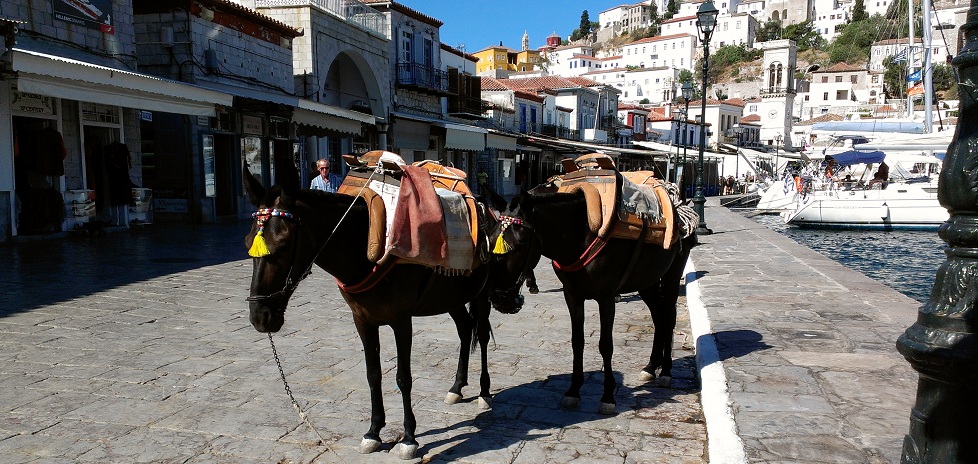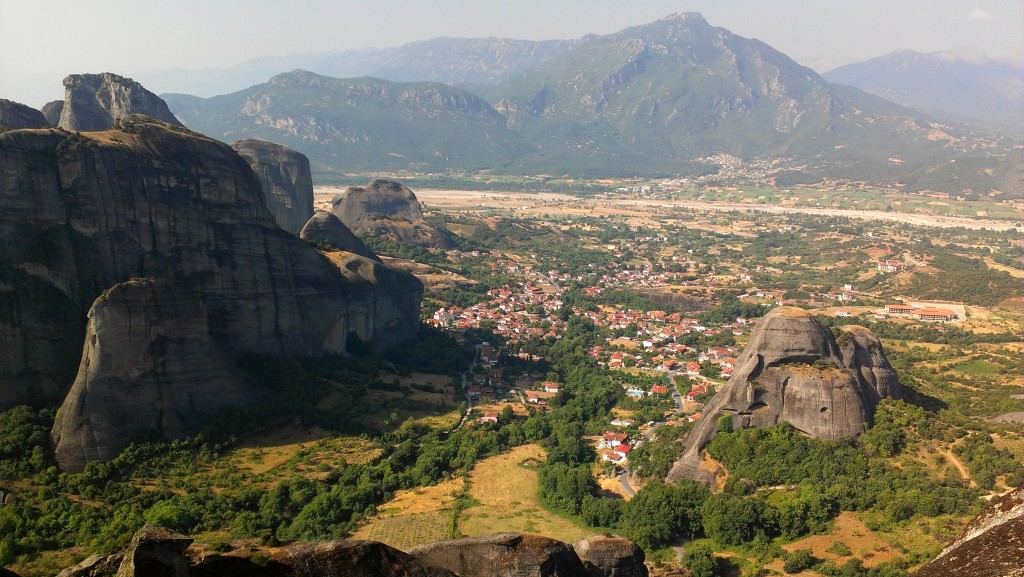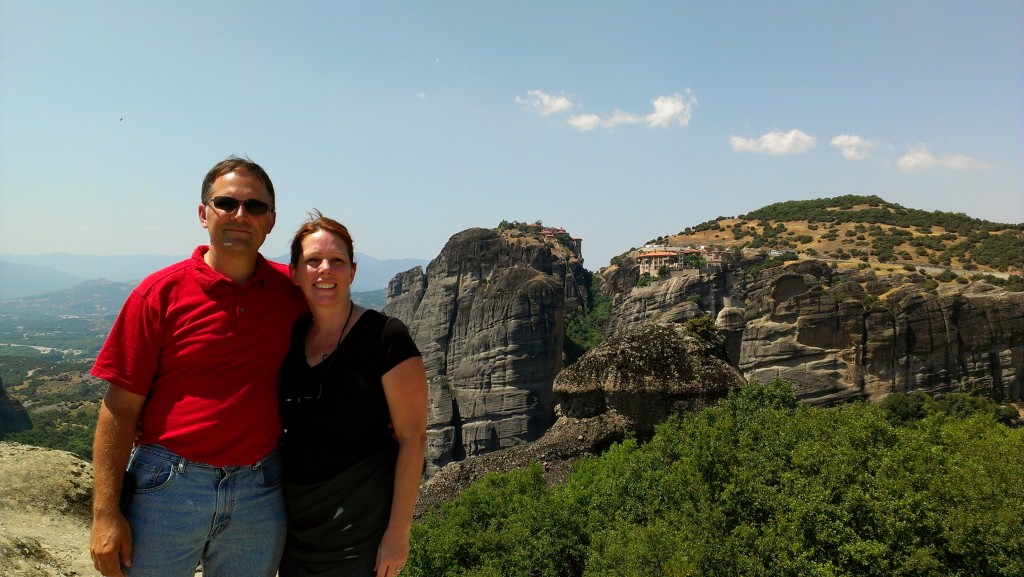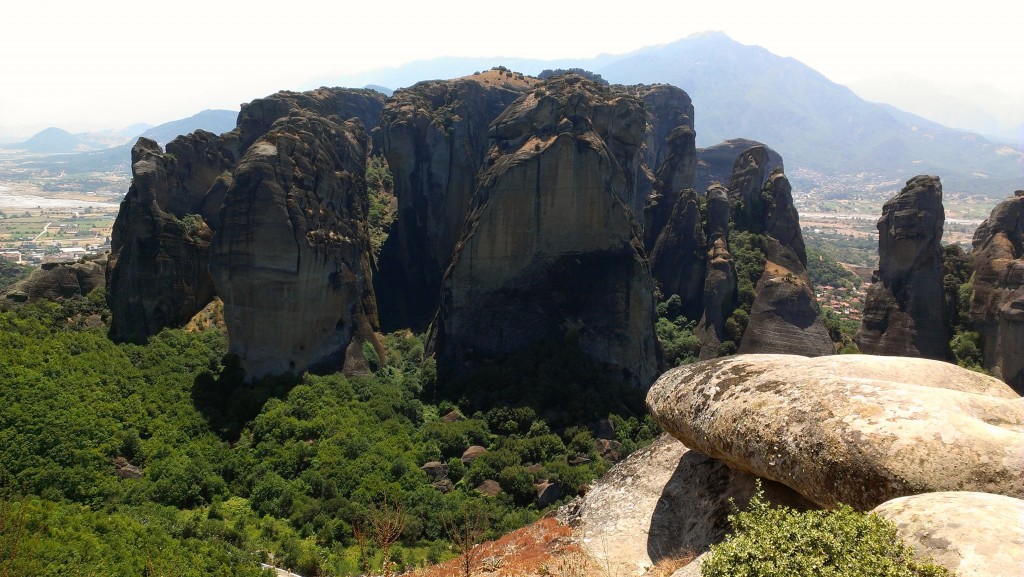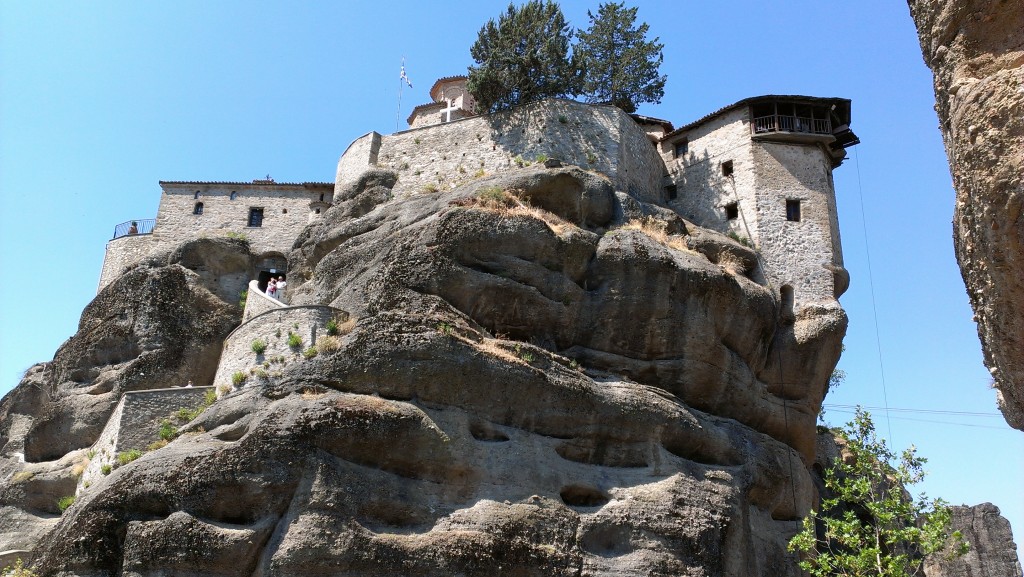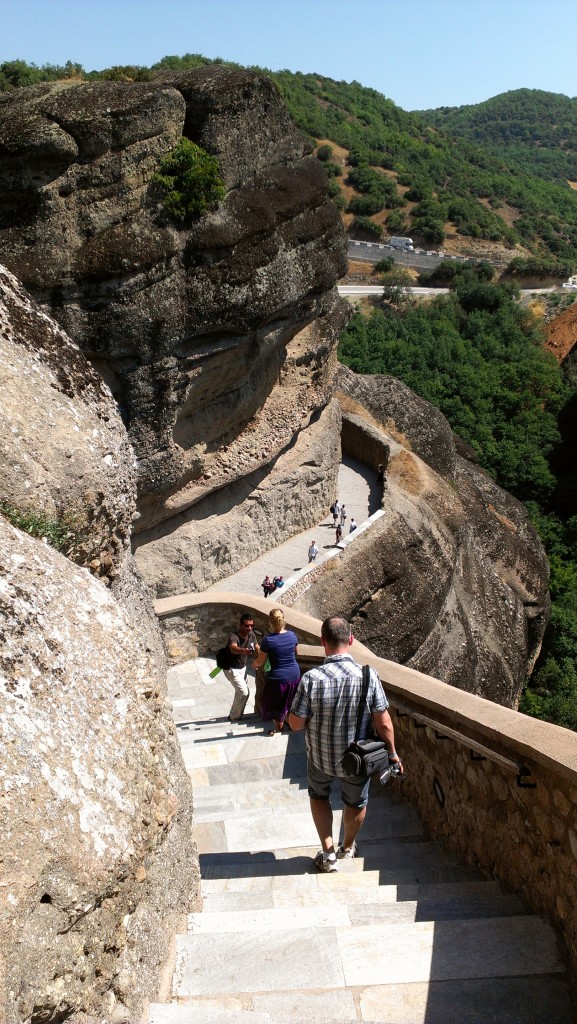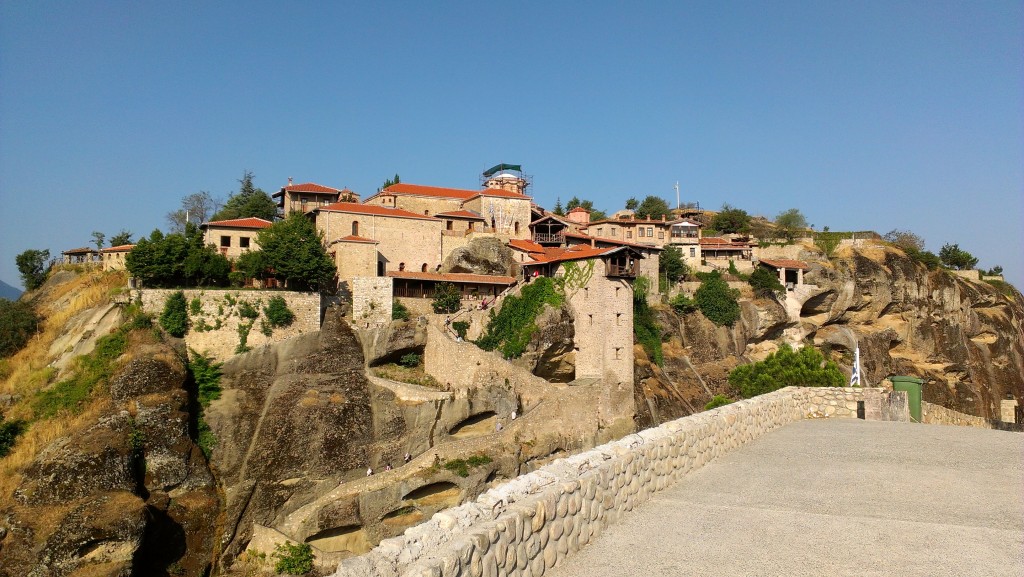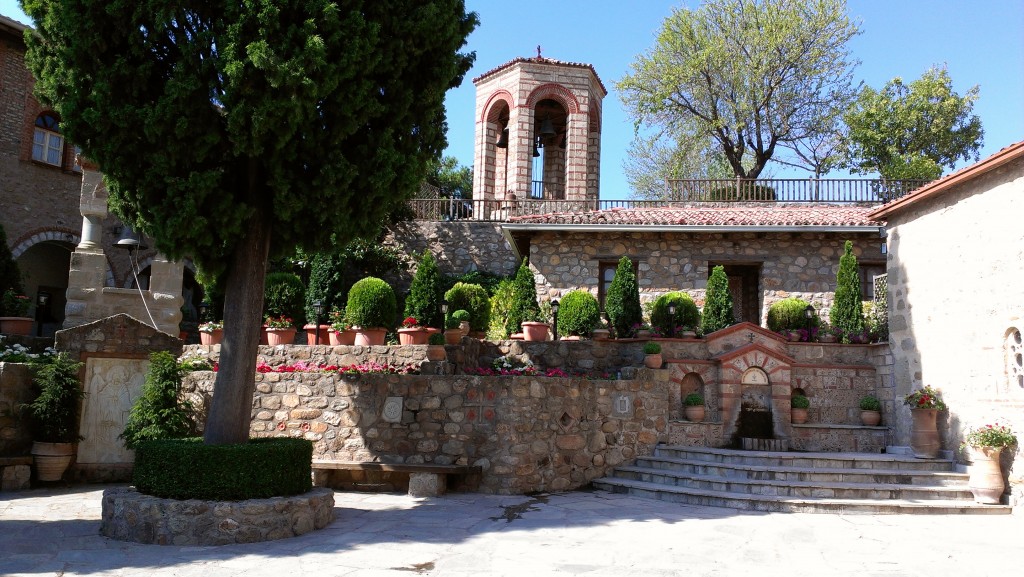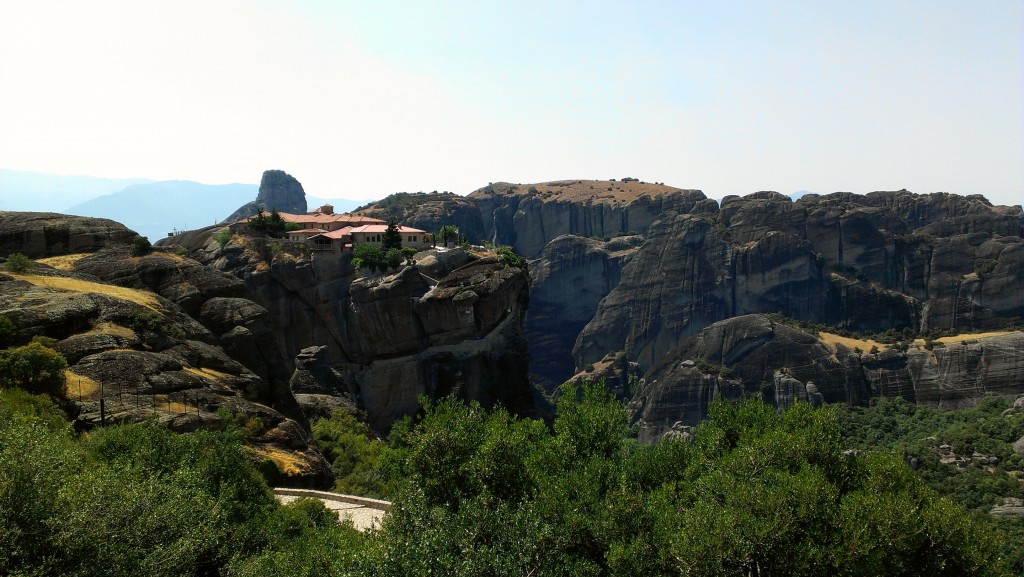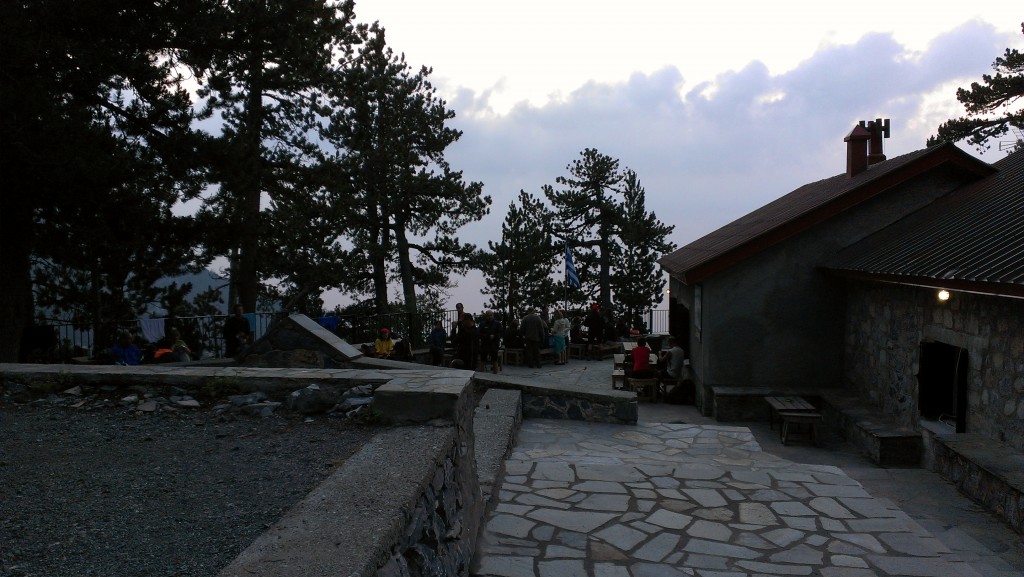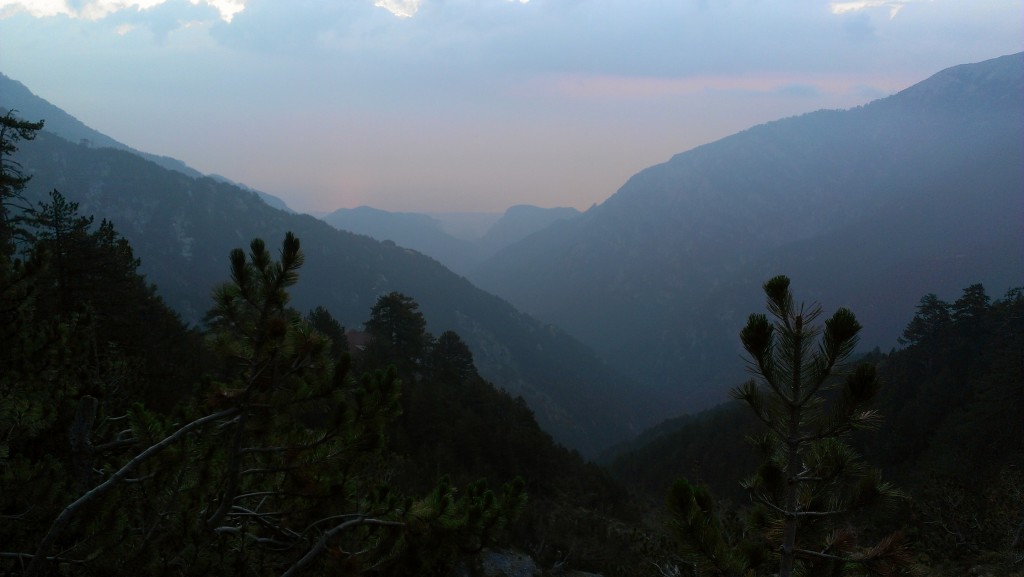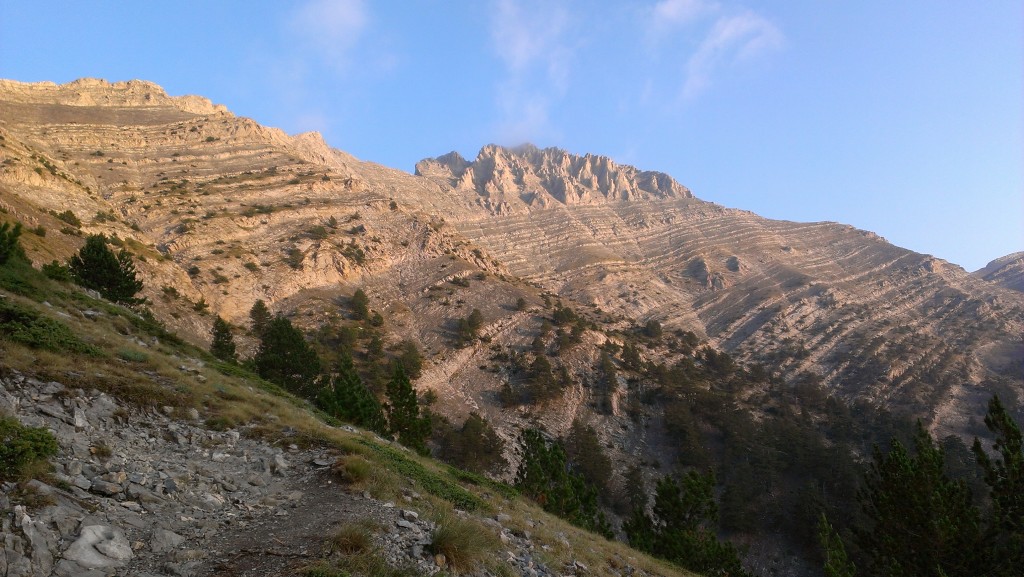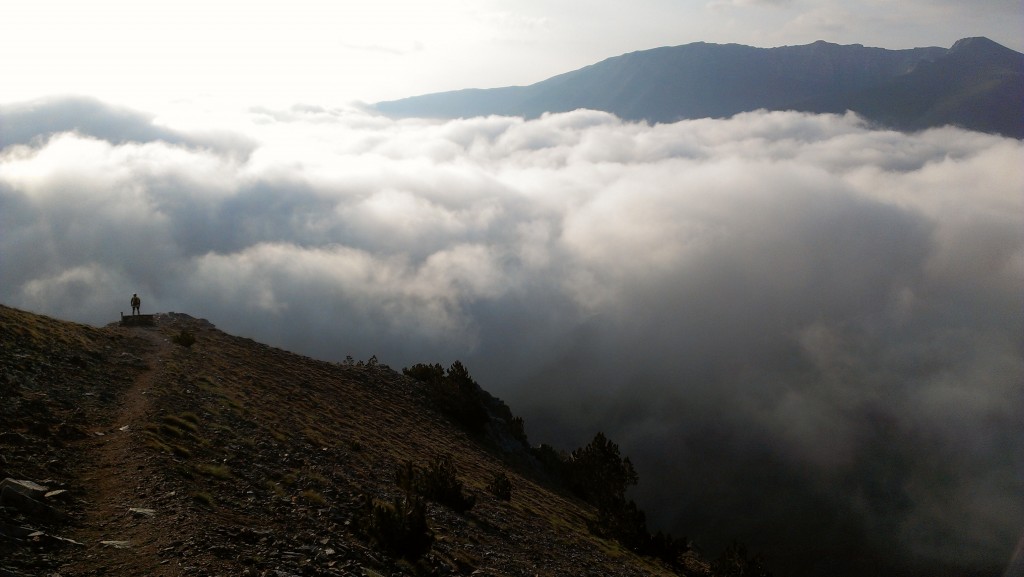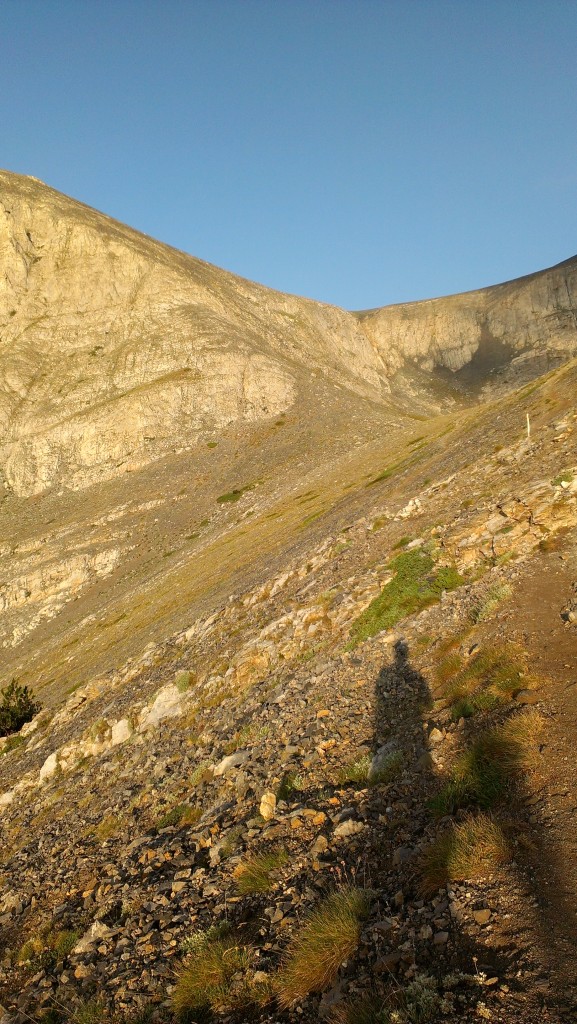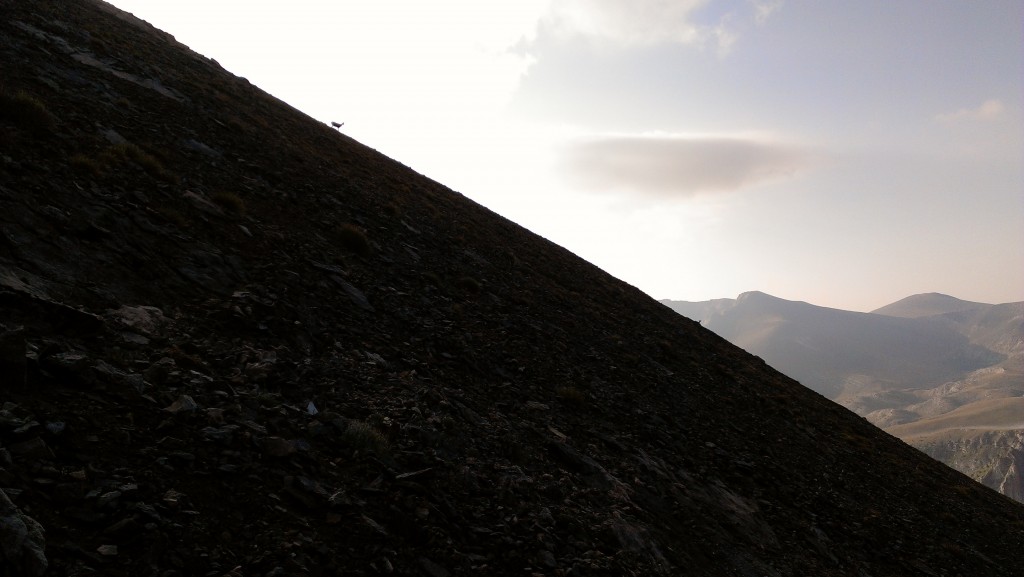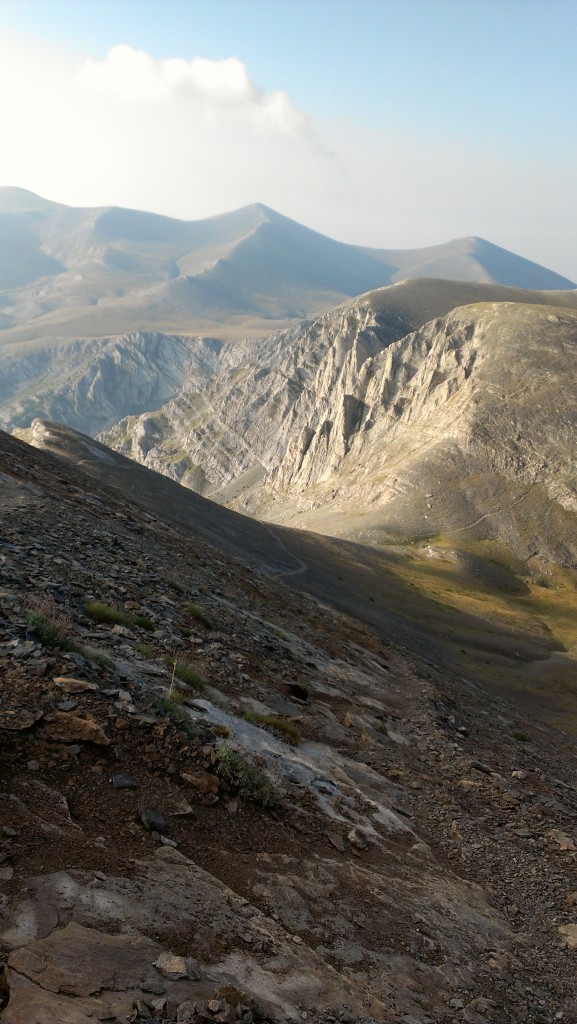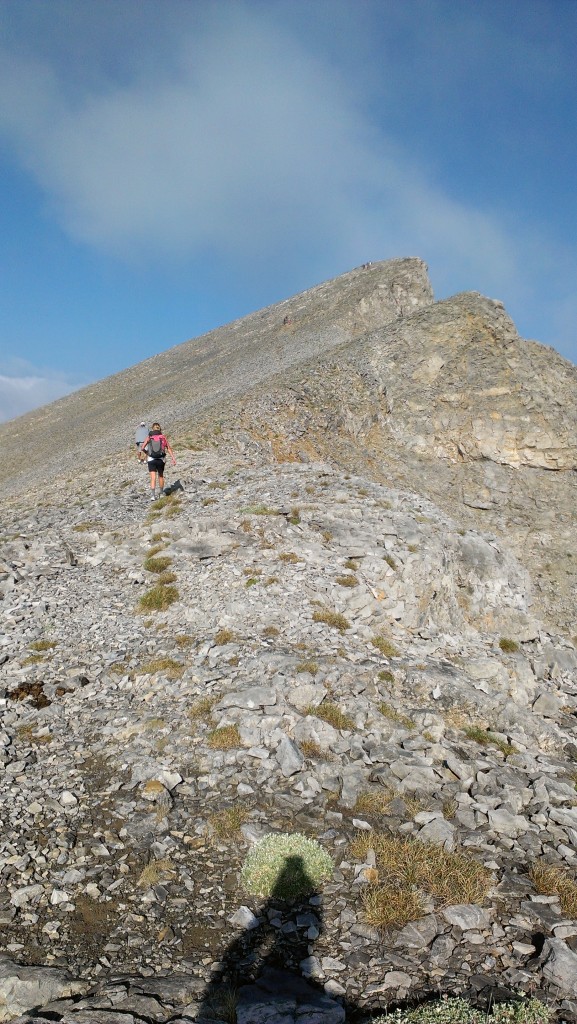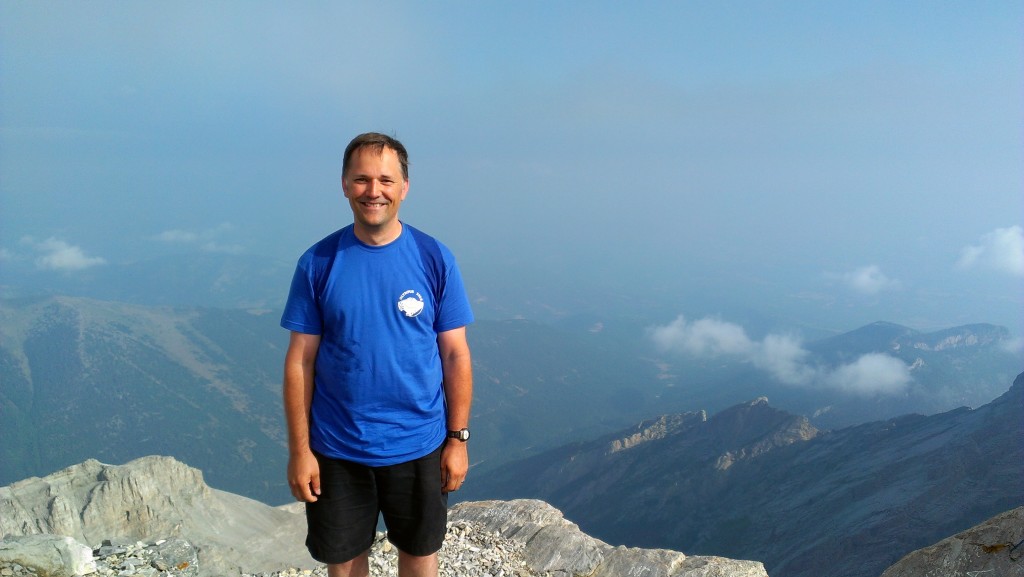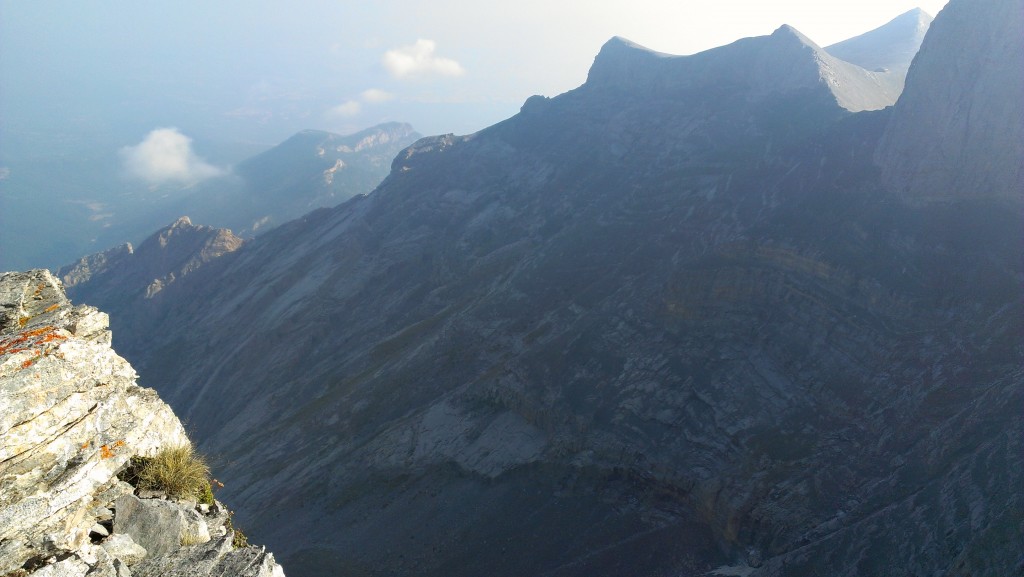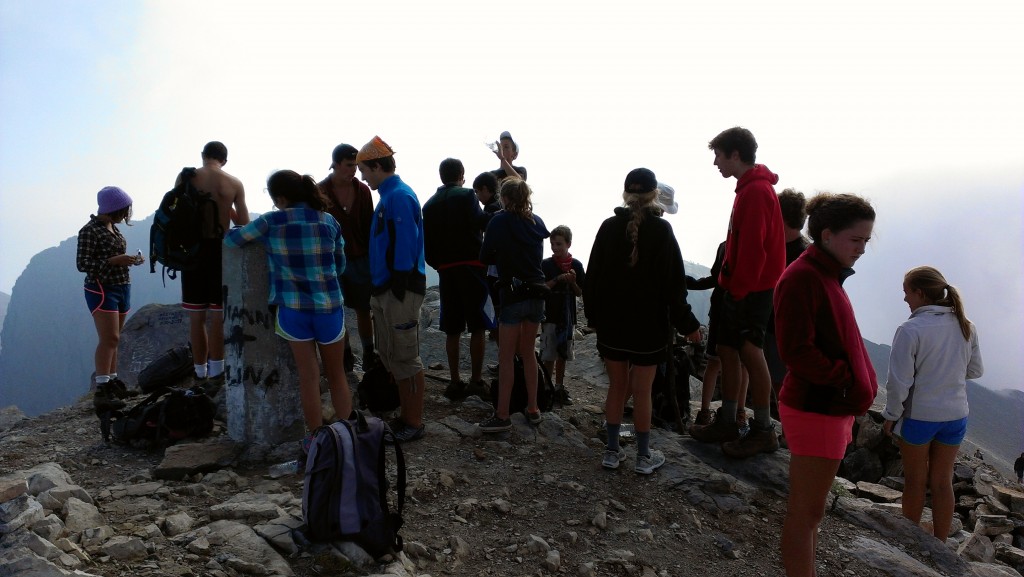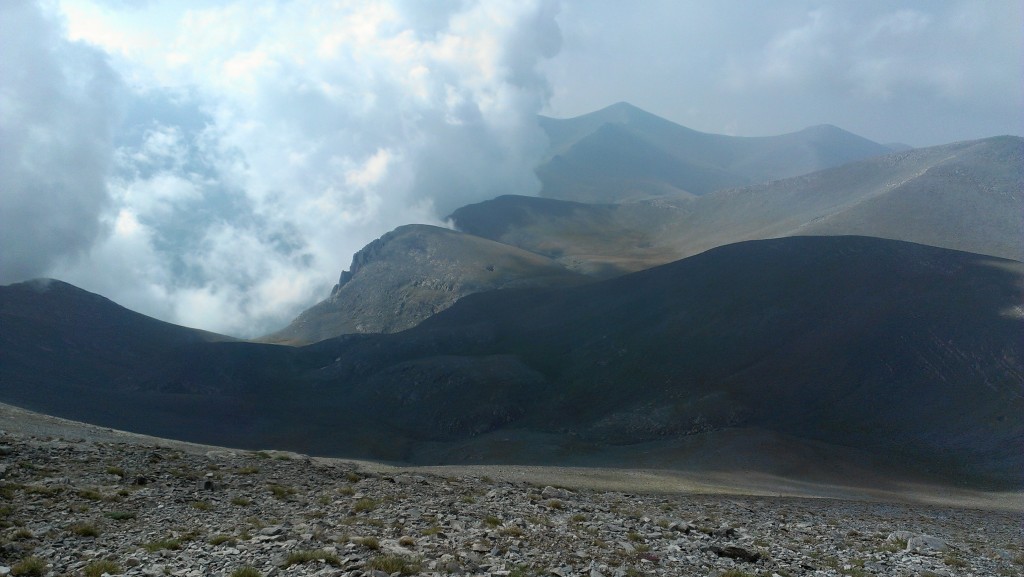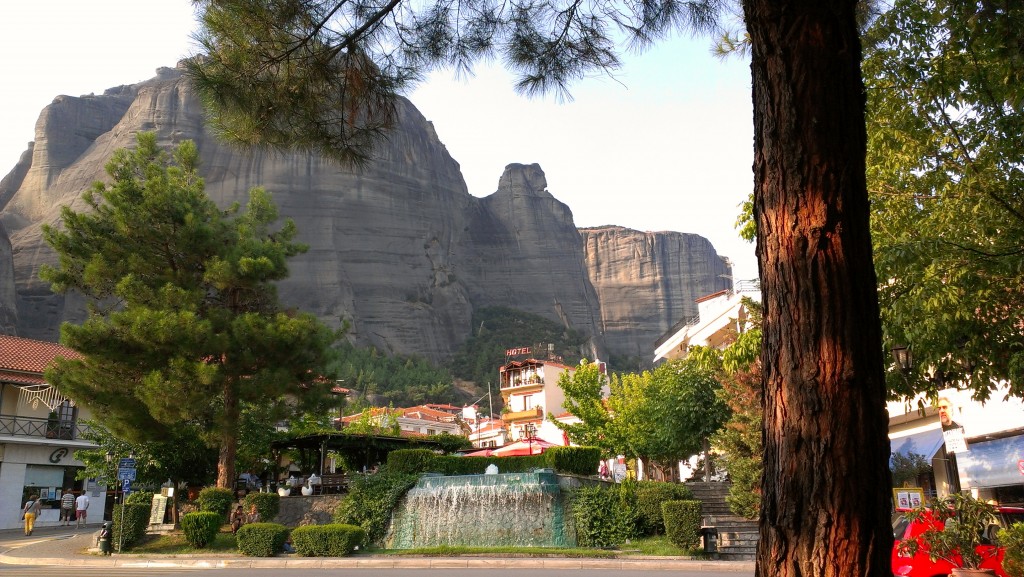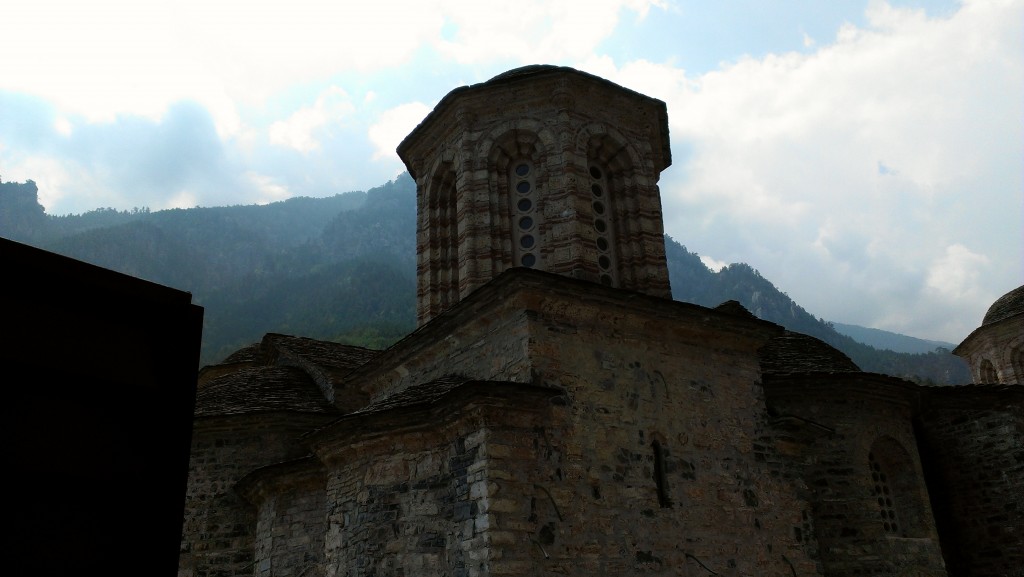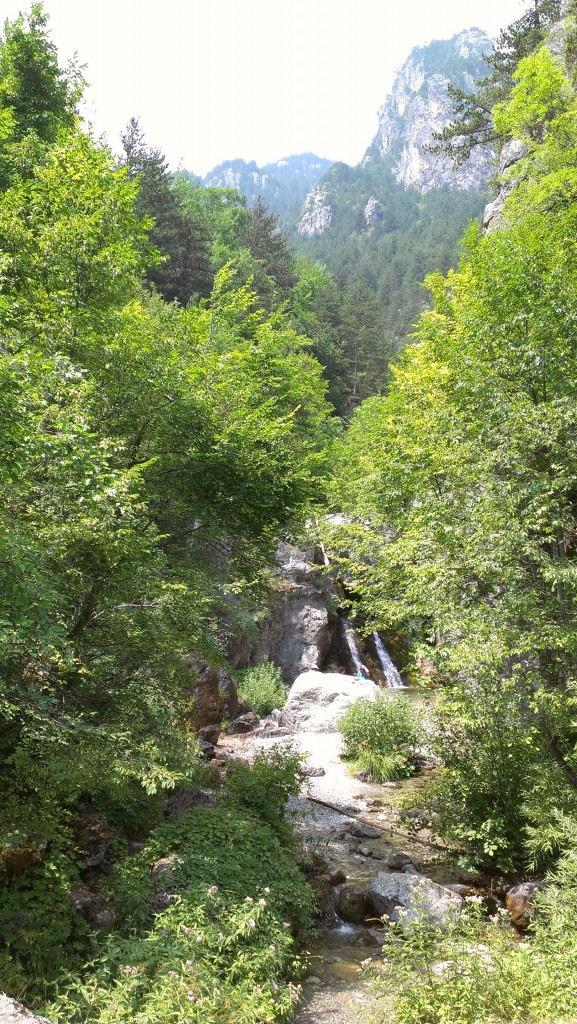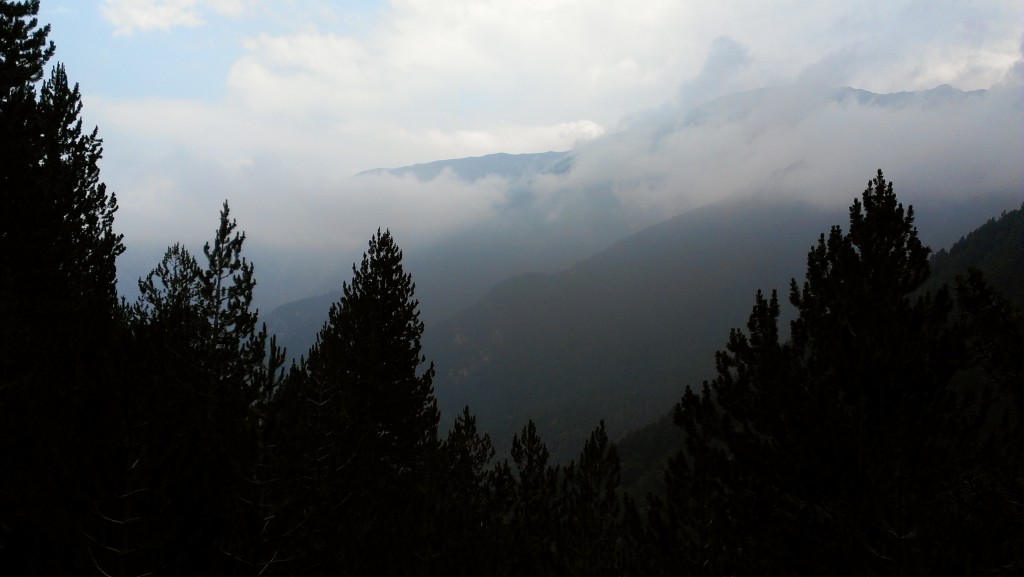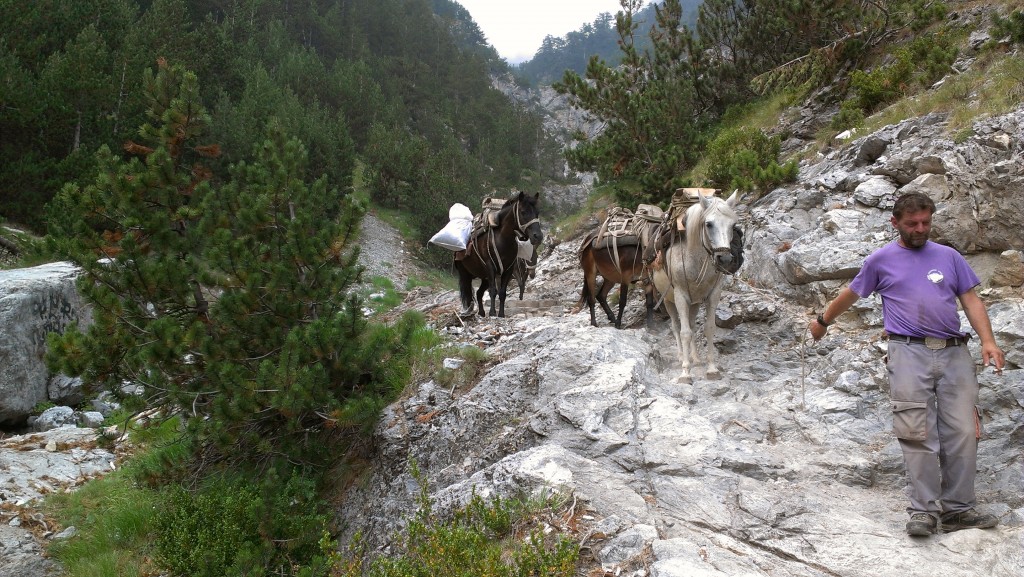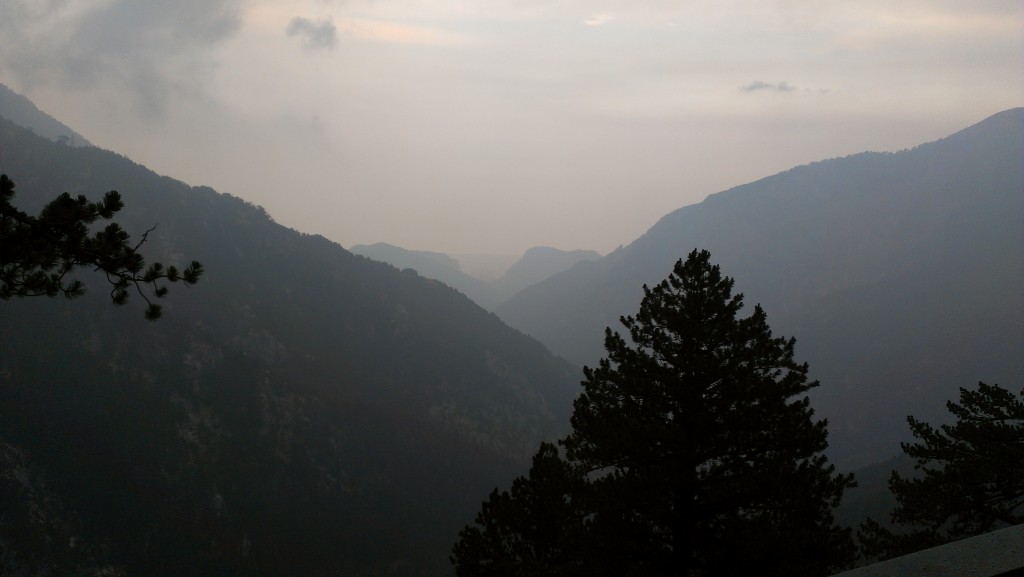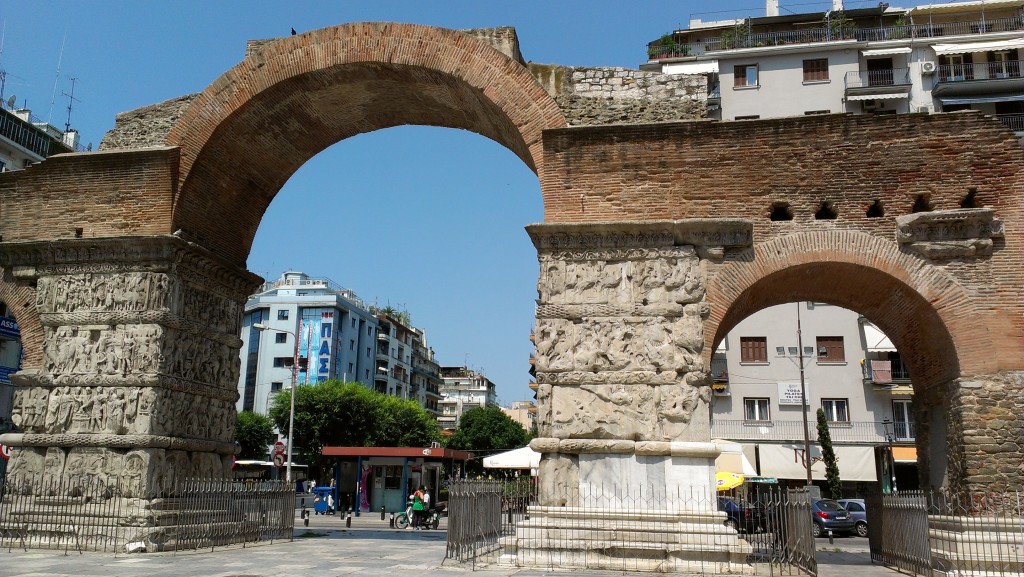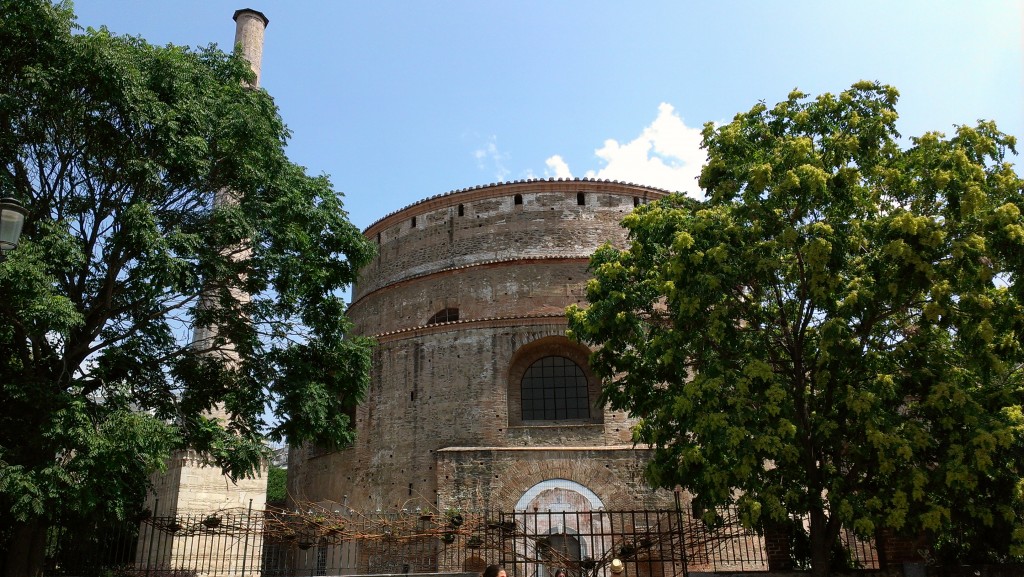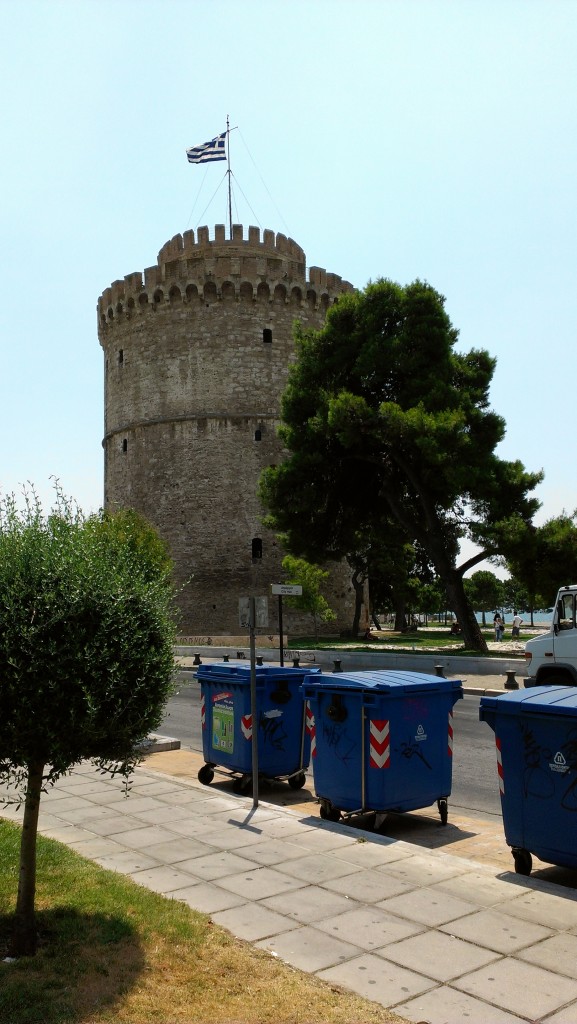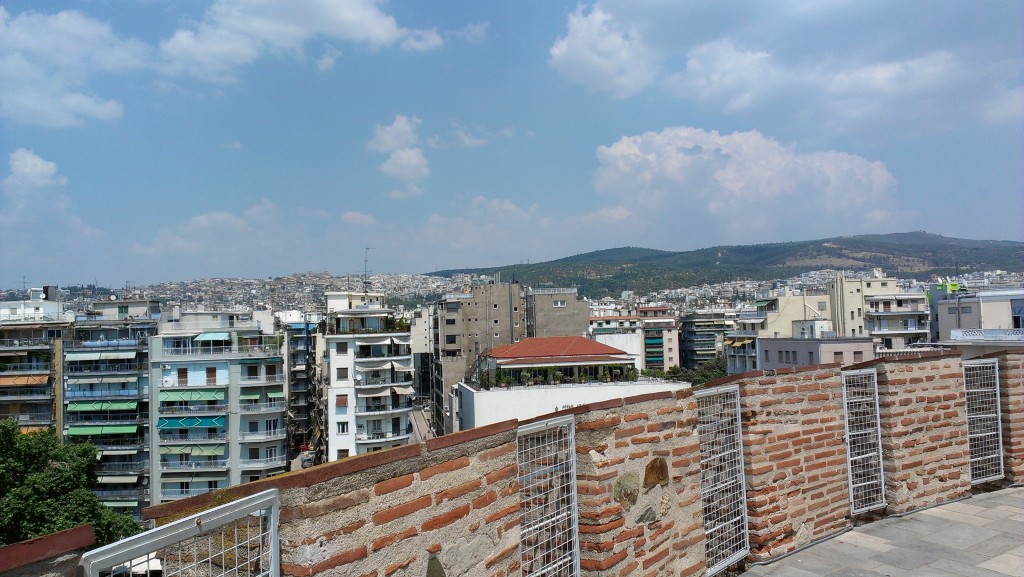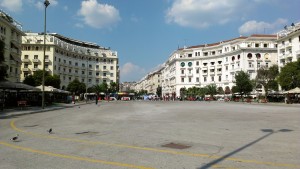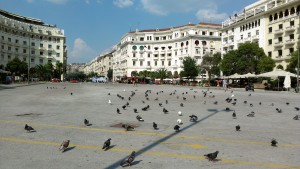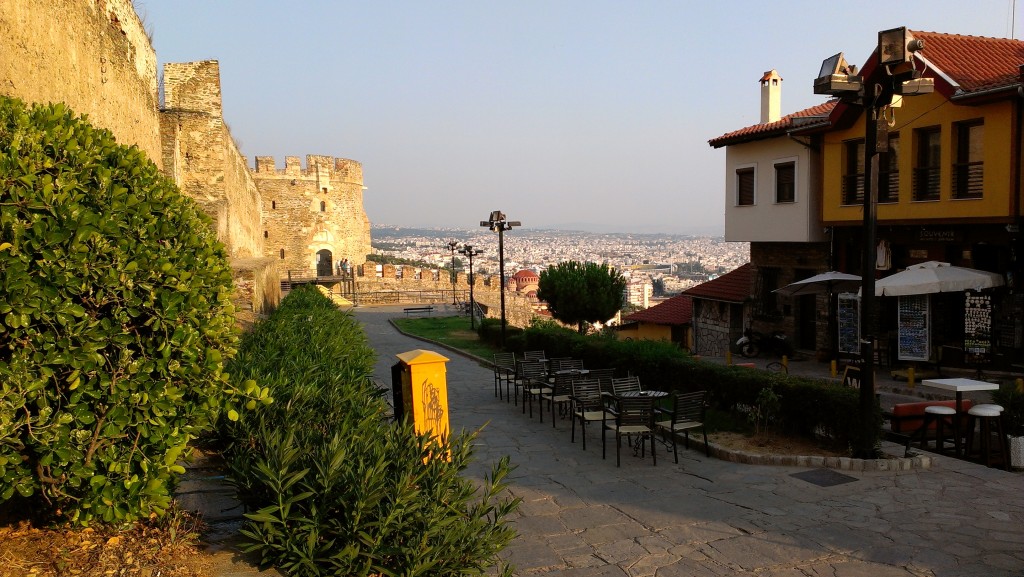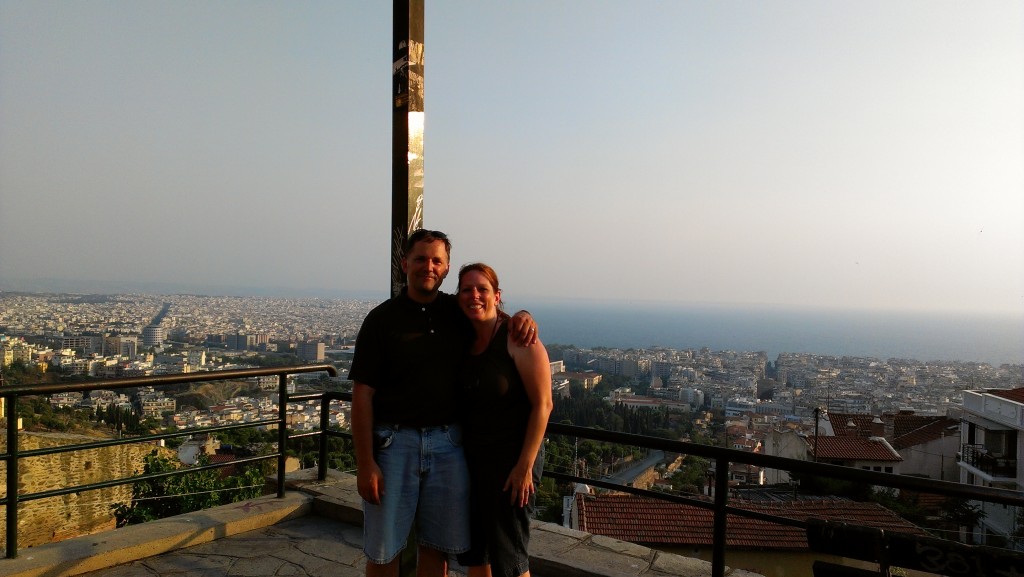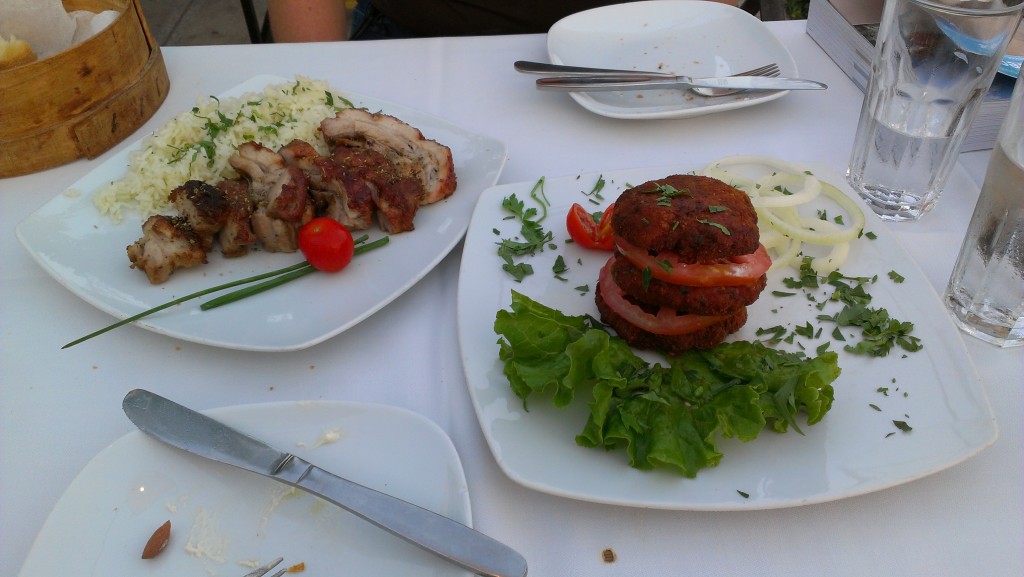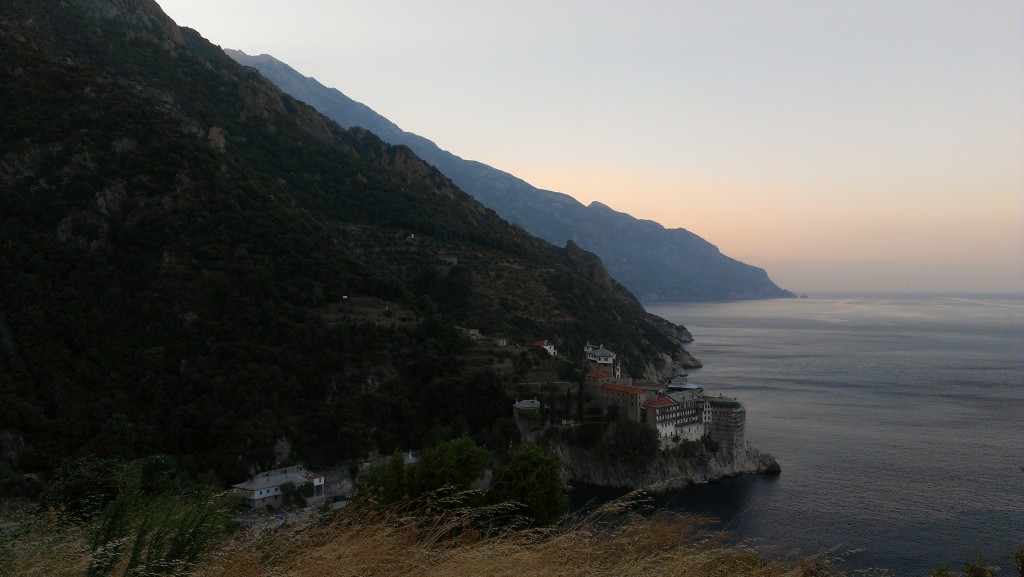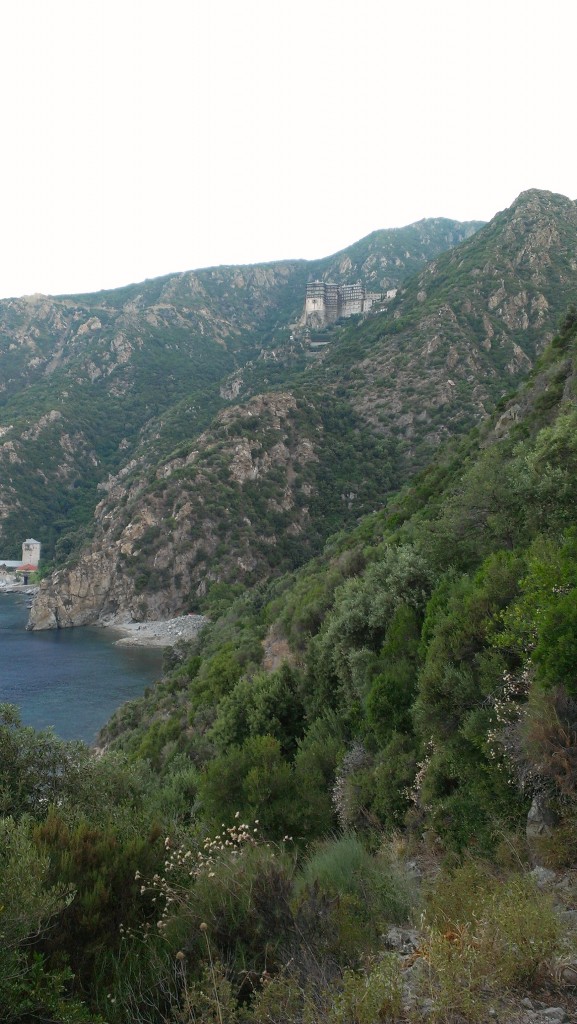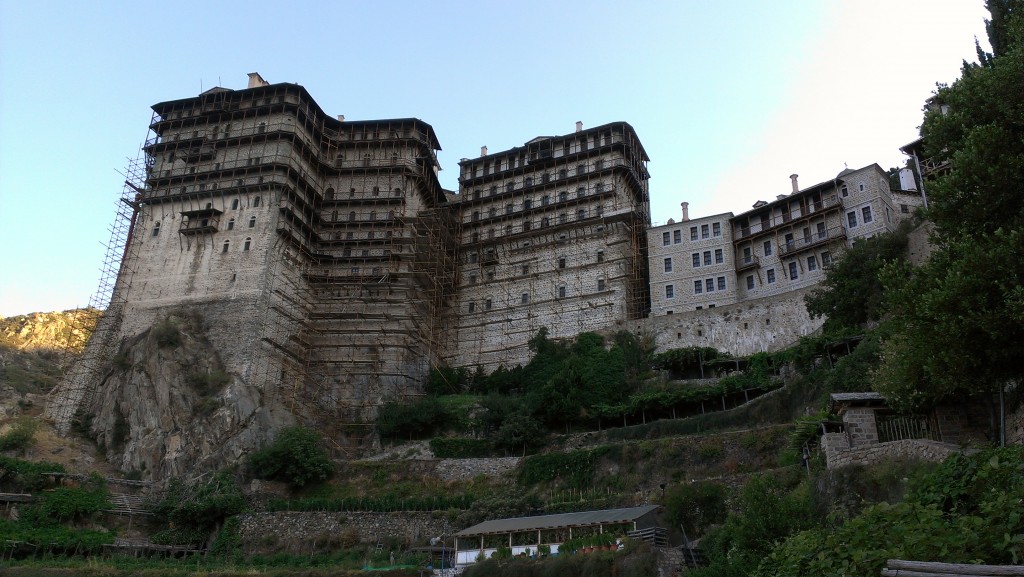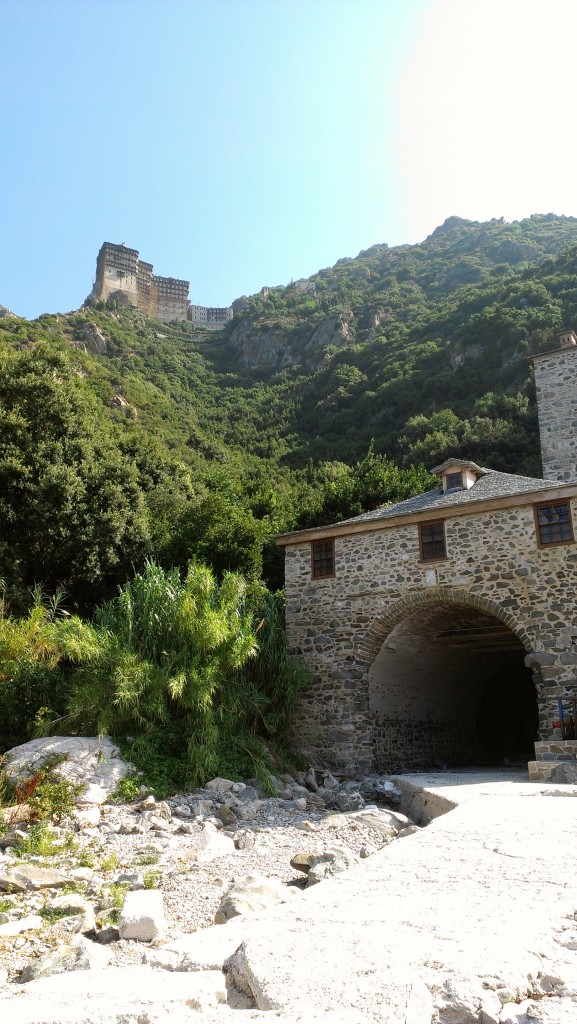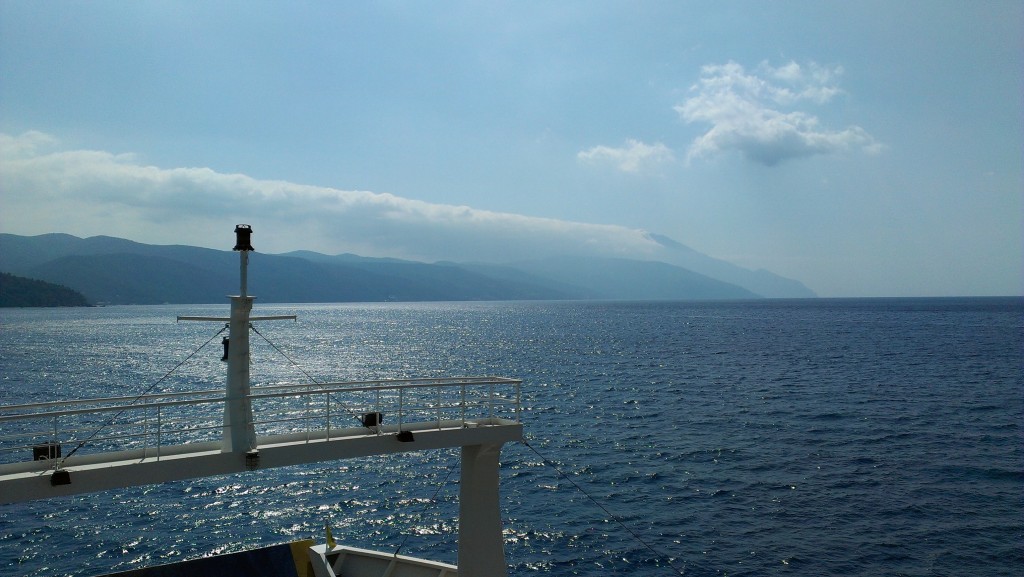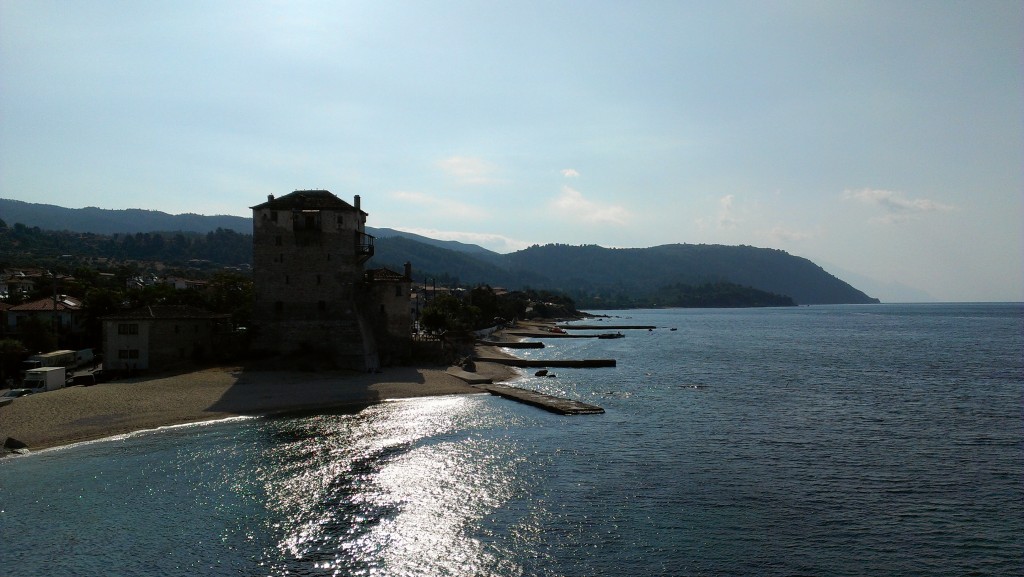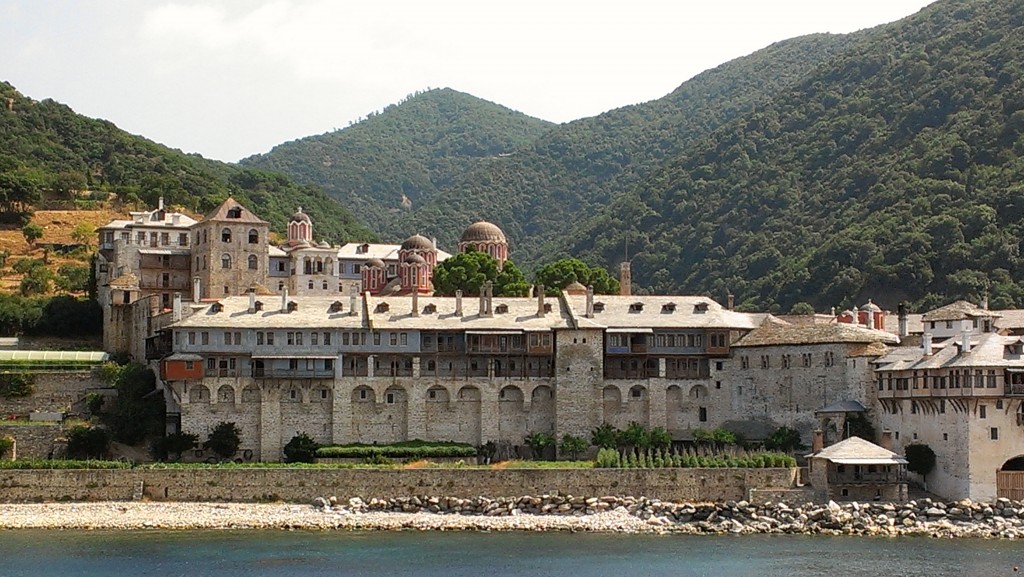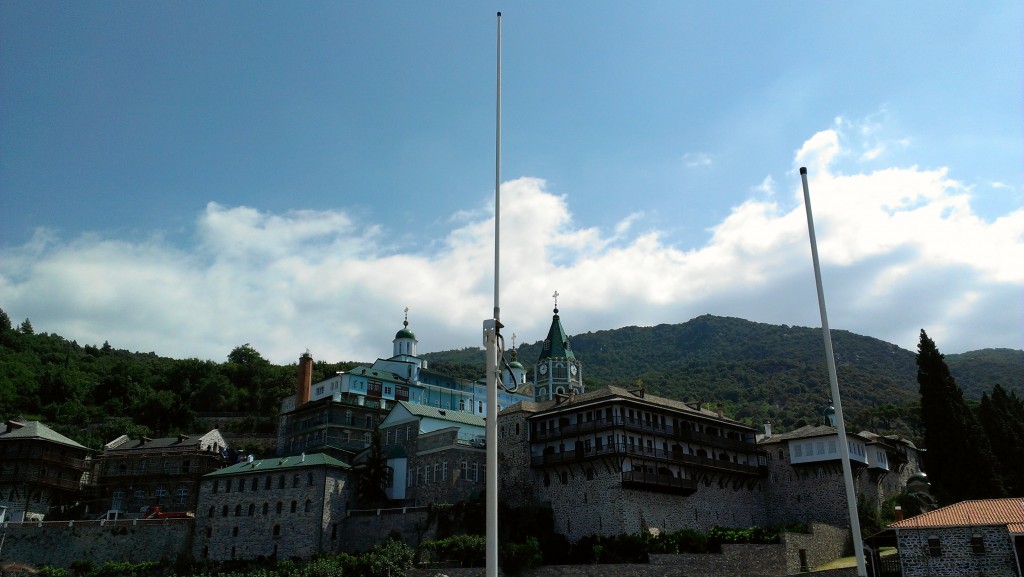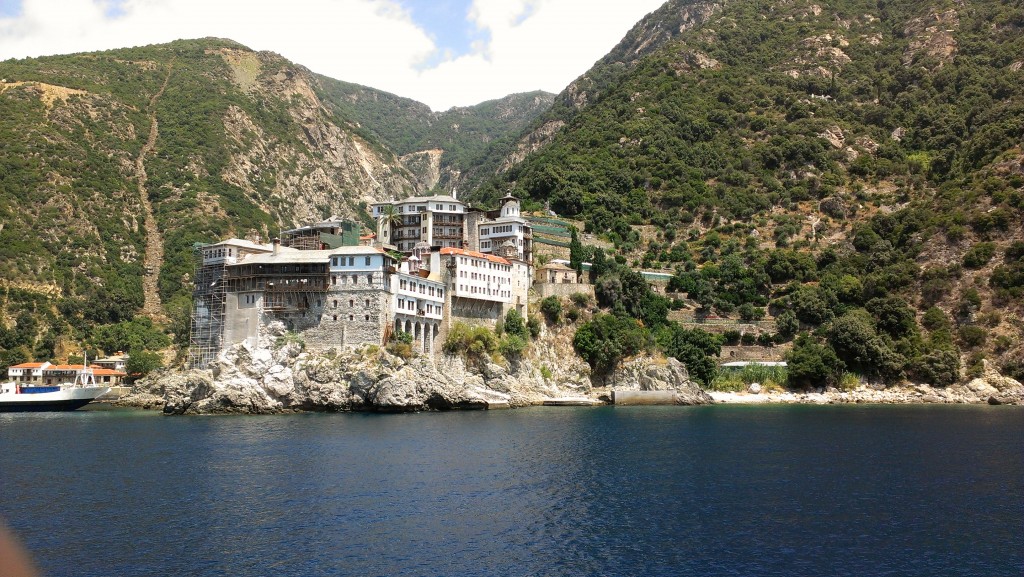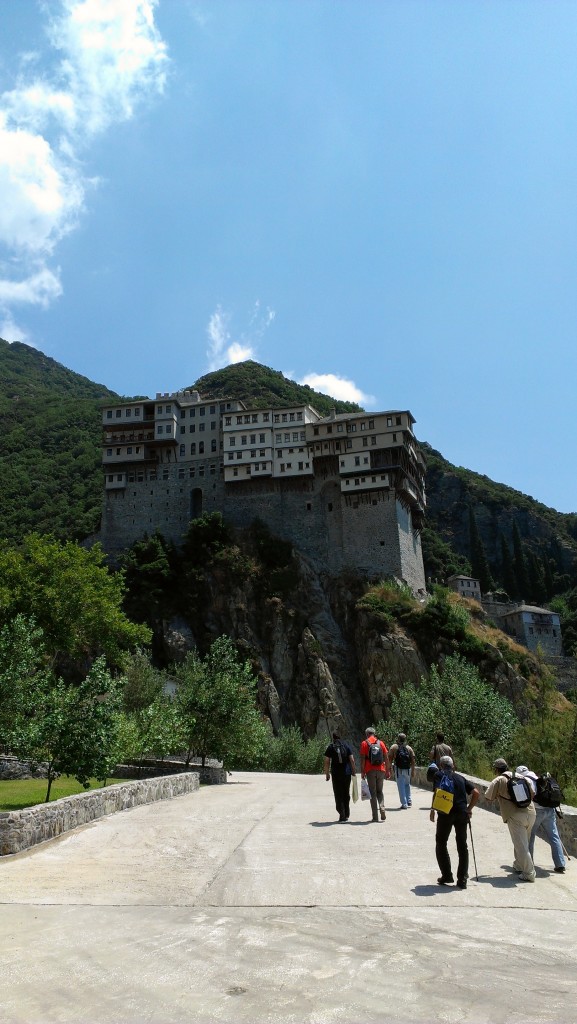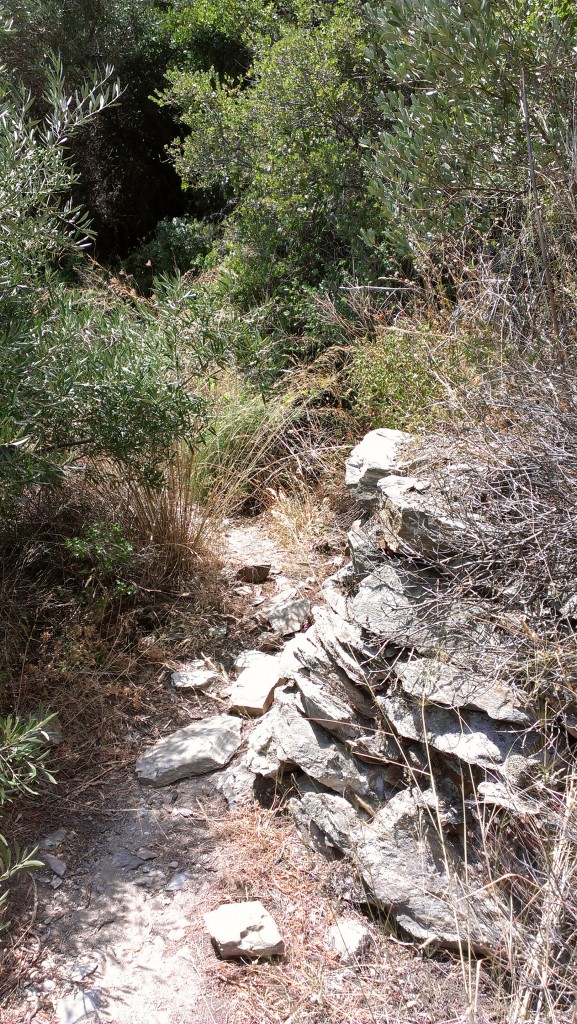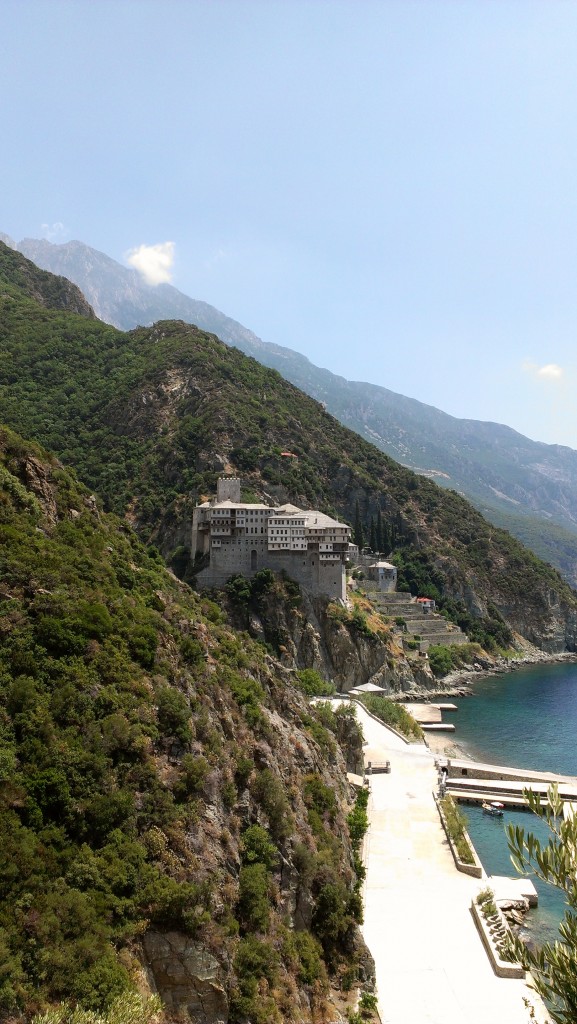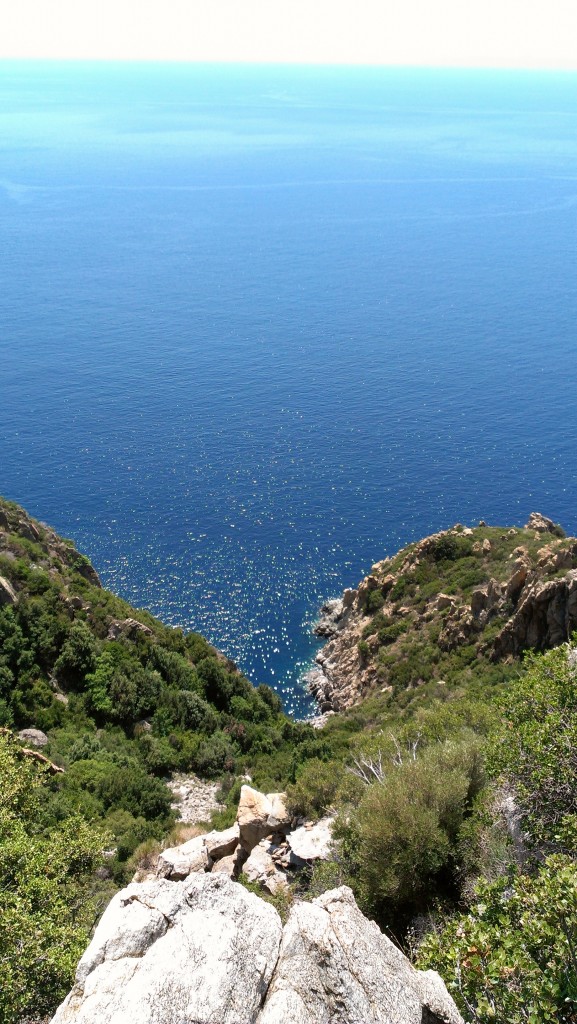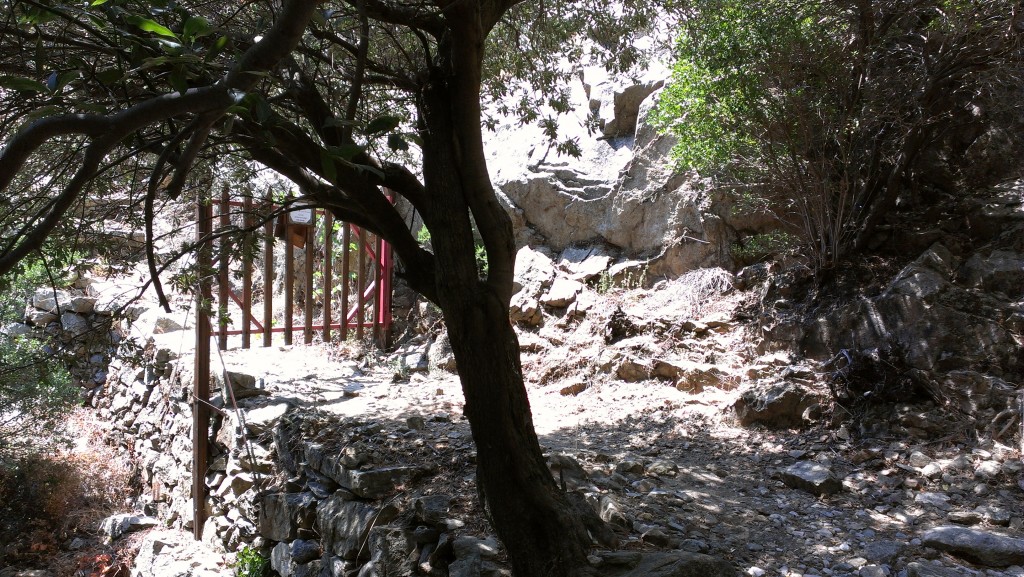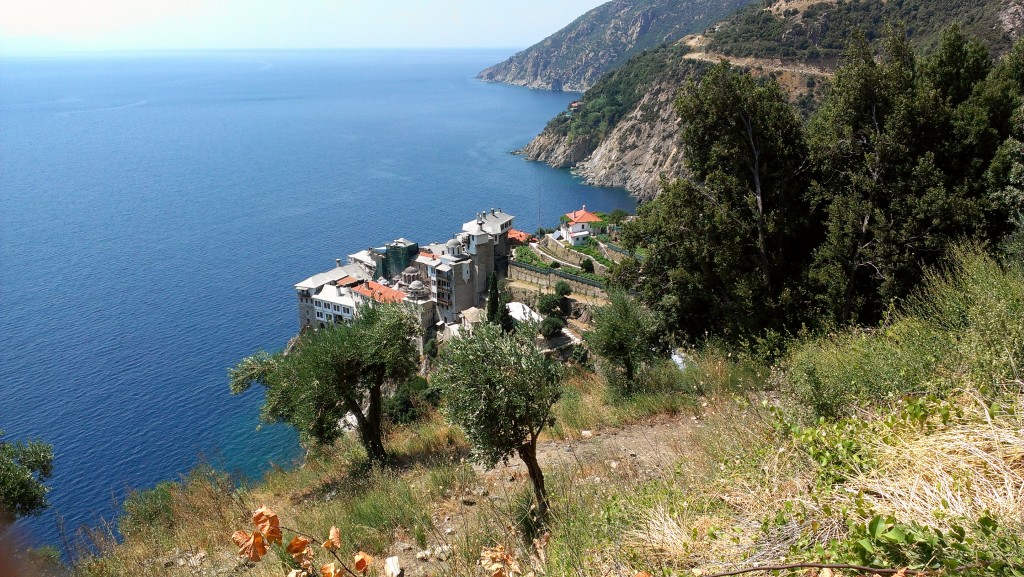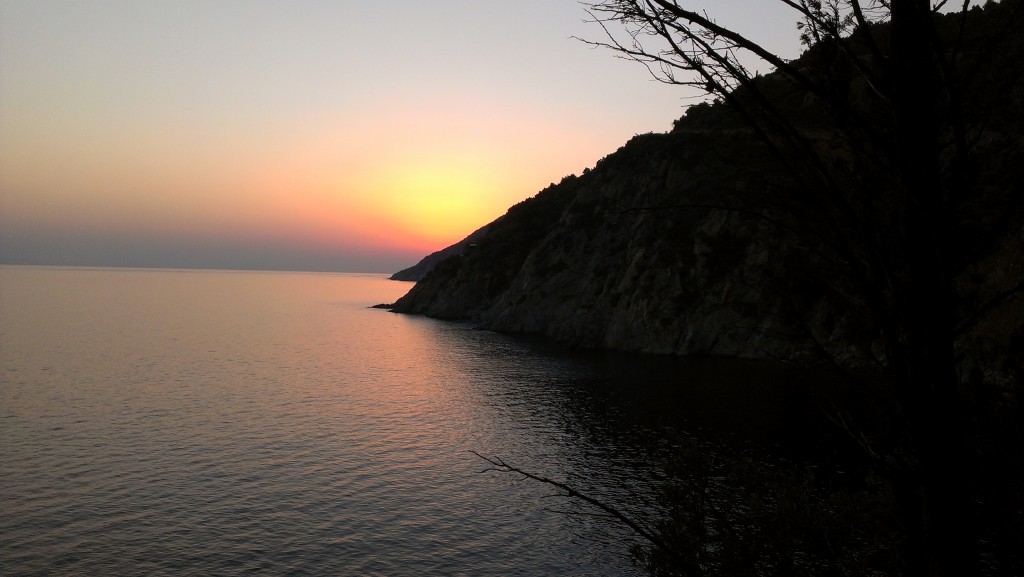We have actually not yet mentioned WHY, out of all the small Greek towns starting with a “K”, we chose to meet in Kalabaka. [Ed. by Leigh: You’ll notice Dan and I don’t agree on how to spell the name of the town. Neither does anyone else. Some say Kalabaka, some say Kalambaka, and our hosts, who live there, spelled it Kalampaka.] Kalabaka is the site of some fairly exceptional geology. It’s home to a series of enormous sandstone pillars, somewhat similar to Monument Valley in the US.
I’d recommend clicking for the full sized picture – it’s definitely worth it.
So imagine you are a Greek person in the Middle Ages, and you are confronted with these impossibly high piles of geology. What would you naturally immediately decide to do? Why, put a monastery on as many of them as possible, that’s what.
There were as many as twenty monasteries here at one time. Over the years, most have returned to ruins, but there are still six in good shape. According to tradition, the first monk to found a monastery here was carried to the top of the rock by an eagle. Seems as good an explanation as any. Lord knows I wouldn’t want to try to climb one of these things without modern safety equipment.
The advantage, from the monks’ point of view, was not only spiritual seclusion, but also security from Ottoman and other intruders. For most of their history, you could only reach the monasteries by being hauled up in a rope net. On being asked how often they replaced the rope, a monk is reputed to have answered: “Only when it breaks.”
Note the lift tower on the right hand side. Fortunately for us, this is no longer the only means of entry for visitors. In the early 1900s, a bishop who was unhappy that his personal safety on visits was entirely in the hands of monks who may, or may not, have actually liked him, demanded that steps be cut in the rocks of the remaining 6 monasteries. So stairs it was.
Lots and lots of stairs. Nearly a thousand all told. This is a big enough deal that when the owner of our hotel gave us a map and a guide the night before, he actually wrote the number of stairs at each monastery on our map, to allow us to plan our climbs. Oh, and did I mention I climbed a mountain the day before? And that it was roughly one hundred degrees out? This was going to hurt.
Over the course of the day, we managed to visit four of the six monasteries. We couldn’t find a good place to park for the fifth, and ran out of time on the sixth. We also returned to town to get lunch, and then again later to stock up on water.
There are actually four monasteries visible in this panorama, the large one near the bottom, a smaller one right above it, and one on either side of the apparent notch on the right side. At this point, you may be wondering why you haven’t seen many pictures of the inside of the monasteries. The problem is, they mostly didn’t allow photography. Each one had a chapel in varying sizes, and all were beautifully decorated. But no pictures, sorry.
This is a courtyard in the Grand Meteoro, the largest of the monasteries. This is also the one where we glanced through the window in a random door and saw a room with rows and rows of skulls on shelves. Yes, skulls. It was quite disturbing.
Also, for you James Bond fans:
This one, the Monastery of the Holy Trinity was the site of the final scene of For Your Eyes Only, one of the least worst of the Roger Moore Bond films.
After we used up our stamina, (and by this point I could barely move my legs) we returned to the hotel for a bit to relax, and then went out to a little ouzeria on the outskirts of town that had been recommended by our guidebook. We had wanted to go there for lunch, but the guidebook also completely biffed on which side of town it was on, so we couldn’t find it. We happened across it randomly later on. I suspect the handy number 23 bus may also go there.
At any rate, the folks there were once again so happy to have visitors that they brought us free of charge a fantastic plate of spicy feta spread and eggplant dip to go with the tzatziki sauce we ordered.
Statistics:
- Means of Travel Employed: Car, stairs
- Stairs climbed: 850 (each direction)
- Maximum elevation: 550 meters
- Meals involving cheese: 1
- Free stuff: Cheese. (Also eggplant.)
- Soviet Plots Foiled: 0
